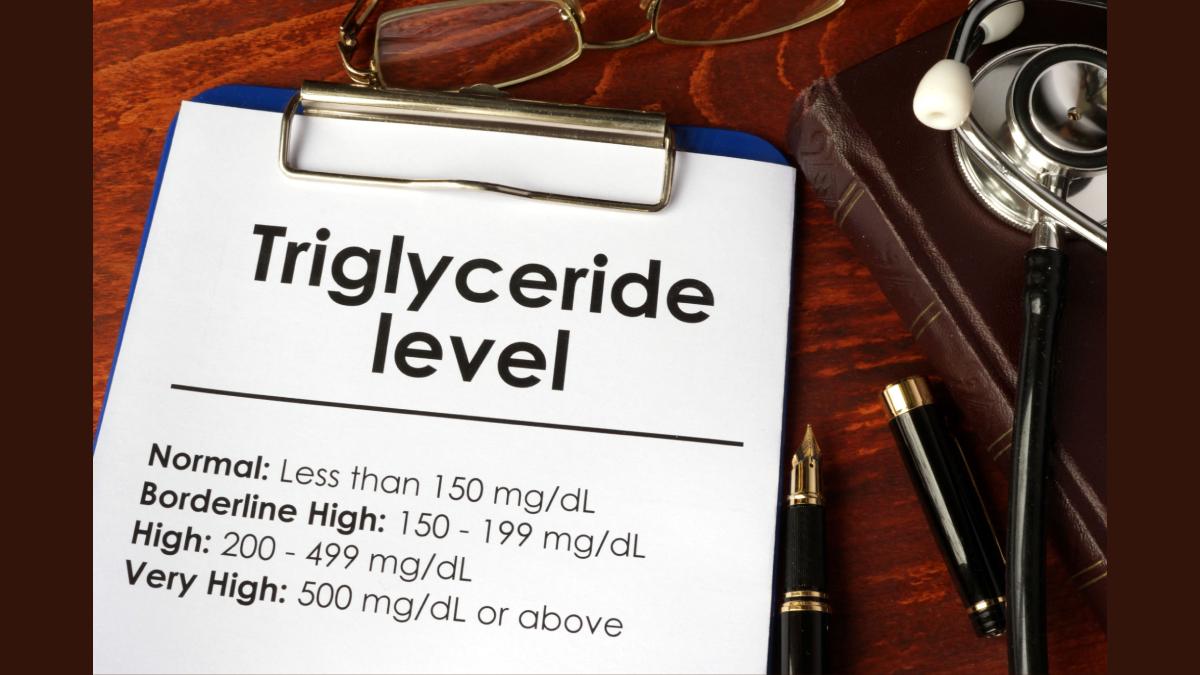Triglycerides – When they are present in the body in acceptable proportions, they are a source of energy; however, they can trigger high levels of heart and liver diseases and evoke kidney disease symptoms That’s how important it is to have balanced ranges of triglycerides in the body.
Undoubtedly, the lifestyle adopted is decisive in this regard. However, when the threshold of what is acceptable in terms of triglyceride levels has been exceeded due to dietary oversights, some drugs can help restore normalcy.
Table of Contents
What are triglycerides?
What do you think of when you hear about triglycerides? They are a type of fat found in the blood. Its chemical structure consists of three fatty acids attached to a glycerol molecule.
After meals, the body begins a process in which it transforms all the calories that will not be used immediately into triglycerides stored in fat cells. Hormones then release triglycerides for energy between meals.
Regarding their origin, triglycerides come from foods such as butter, cream, fatty meats, whole milk products and in some plant-based foods such as coconut and palm oil
What are triglyceride levels considered normal?
Suppose you have gotten into regularly eating more calories than you burn, especially from foods rich in carbohydrates. The result could be that your triglyceride values increase excessively, known as hypertriglyceridemia.
It is essential to keep in mind that high triglycerides increase the risk of heart conditions, such as coronary artery disease. On the other hand, studies show that hypertriglyceridemia carries an increased risk of suffering from fatty liver and acute pancreatitis.
A blood test can reveal if your triglycerides are within a healthy range, these values being the following:
- Normal:Less than 150 mg/dL
- Borderline High:150 to 199 mg/dL
- High:200 to 499 mg/dL
- Very high:500 mg/dL and above
Risk factors that can increase the level of triglycerides
Several factors can make people more likely to suffer from high triglyceride levels. Therefore, those in these groups should make an effort to change their eating habits, avoid a sedentary lifestyle and customs that are harmful to health, and receive relevant medical assistance.
Among the external and internal risk factors can point out the following:
- Overweight and obesity.
- Genetic heritage.
- Excessive consumption of alcohol and the practice of smoking.
- Do little physical activity.
- Consumption of trans fats.
- Frequent use of birth control, steroids, and diuretics
Sometimes hypertriglyceridemia is the side effect of taking certain medications too often, such as:
- diuretics
- estrogens
- progestogens
- Retinoids
- steroids
- Beta-blockers
- Some immunosuppressants
- Some HIV medications
What diseases can cause high triglyceride levels?
They can cause hazardous health conditions in higher than average proportions, including cardiovascular system diseases and liver and kidney disorders. Some of the pathologies that often arise due to uncontrolled levels of these fats are mentioned below:
- Hardening of the arteries, or the thickening of the arterial walls, known as atherosclerosis.
- heart disease
- Acute inflammation of the pancreas also called pancreatitis.
- Hepatic steatosis.
High triglycerides can also be a sign of:
- Type II diabetes.
- Metabolic syndrome, where arterial hypertension, obesity and hyperglycemia occur together.
- Low levels of thyroid hormones or hypothyroidism.
- Cushing’s syndrome.
- Nephrotic syndrome.
- Chronic renal insufficiency.
What steps can be taken to lower triglycerides?
Measures to avoid high triglycerides or reduce them are directly related to a healthy lifestyle. In this regard, the Spanish Heart Foundation recommends:
- Lose weight. Focus on cutting calories because extra calories converted to triglycerides and stored as fat in the body.
- Exercise regularly. It’s recommended to implement at least 30 minutes of physical activity daily or several days a week.
- Limit the number of alcoholic beverages you drink. Since alcohol is high in calories and sugar, it significantly impacts triglycerides.
- Avoid refined carbohydrates. It is clear that simple carbohydrates, such as sugar and foods based on white flour or fructose, have the potential to increase triglycerides.
- Eliminate saturated fats. Replace them with healthier fats found in plants, such as olive and canola oils. In addition, it is essential to avoid trans fats, which are common in pastries, pre-cooked frozen foods and snacks.
- Eat foods rich in omega-3, fruits and vegetables. Among them are blue fish such as sardines, tuna, salmon and mackerel. Food supplements such as PROFILE OMEGA 90 PEARLS 1000MG PRISMA may also be helpful.
What medications help lower triglyceride levels?
If changes in routine are not enough to control high triglycerides, health specialists may prescribe some medications that must administer under strict medical instructions, such as the following:
- These drugs used to lower cholesterol and triglycerides; they also used in people with blocked arteries or diabetes. Some of these drugs are atorvastatin calcium and rosuvastatin calcium.
- Fish oil. Food supplements based on omega-3 fatty acids help lower triglyceride levels. Its heart-healthy effect seen in Eskimo populations in Greenland, whose diet often includes fish oil. Although, you should take it in moderation not to affect blood coagulation.
- Fibrates, such as fenofibrate, clofibrate, and gemfibrozil, may reduce high ranges. But, we should note that we cannot use them if the patient has severe kidney or liver disease.
- It can also called nicotinic acid. This can achieve the goal of lowering triglycerides and bad cholesterol.
In summary, to improve triglyceride levels, it is essential to have a proper diet, exercise regularly, get rid of vices that affect health, and, if necessary, with medical guidance, use appropriate drugs.


